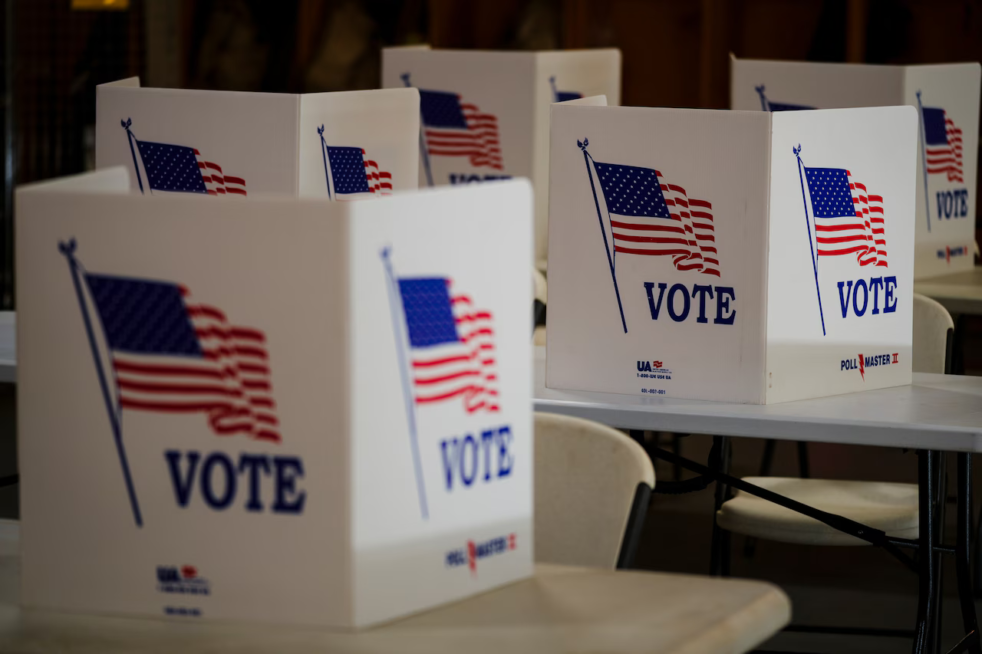As the clock ticks down to the 2024 Presidential Election, the undecided voters of the United States are speaking out. Though the undecided generally make up a small percentage of voters, they have captured the nation’s attention with growing polarization. These voters are traditionally difficult to study, but they have the potential to “swing” a state’s election results, making them key targets during presidential campaigns.
Shinhai Chen, a first-year IE major from Johns Creek, Georgiawas originally an undecided voter and opted to vote for the Green party.
“I decided to vote for the Green Party because they care about social rights like the left and have a greater emphasis on climate change,” Chen explained.
Chen added that he feels “Trump as a person is just horrible; some of the things he said and things he’s done are unfathomable.”
Conversely, Chen elaborated that , “I feel like Kamala won’t be very different from Joe Biden.” He states that it “feels like people think politics is so much deeper than it is” and believes that the election is not as severe as both sides make it out to be.”
“I feel like, at this point, it’s just become personal from both sides and devolving into something counterproductive,” Chen said.
During a recent debate on the social media platform, Jubilee, regarding Republicans and Democrats Voting on a President, several voters on both sides of the aisle remained undecided and unsure of who they wanted to vote for. Recently, Jubilee, which aims to “Provoke understanding & create human connection”, has created political videos, all of which receive millions of views and have garnered attention with their unique videos, such as this one.
Jaylen Richey, an undecided Republican from California, mentions on Jubilee he is an “undecided voter because I don’t feel represented by Kamala or Trump,” adding that “both of them want to fund wars and not fund the American people.”
In a follow-up interview with the Technique, Richey states, “My main fear with this election is political violence. I feel like citizens will be extremely upset with either outcome, but I’m also fearful that the election might not even happen.” He adds, “I feel like the Democratic party specifically is gonna do anything they can to keep power.”
Richey states, “I’m still undecided on voting and honestly don’t plan on casting a vote because I don’t like either candidate, and I feel like my vote genuinely does not matter for the presidential election.”
Bridgette Chan, an undecided Democrat from California, mentioned on Jubilee, “I think Kamala Harris needs to run on more progressive policies. I honestly don’t understand why she continues pandering to the right when there is a very large voter base that is there and ready to support her as long as she runs on more progressive policies.”
She adds, “I’m undecided because I’m kind of lucky to live in California, where it’s a historically Blue State. So, I think that I could also use my vote to potentially uplift a third party, which I believe aligns with my values a bit more. But I do also think that if I lived in a swing state, I would definitely be voting for Kamala.”
In a follow-up interview with the Technique, Chan mentions, “I just wanted to clarify that I was undecided between PSL [Party for Socialism and Liberation] and Harris.” She adds, “I think people should vote based on the policies they align with and what they believe will do the least amount of harm.”
Oftentimes, undecided voters turn towards third party candidates with those on both sides of the aisle exploring options within the Green Party, the Party for Socialism and Liberation and the Libertarian Party. This year, there were four third party candidates listed on the ballots in Georgia.
Charles Tortorici, a first-year ME student from New York, feels that “they are two very poor candidates. I see my vote as the lesser of two evils.”
Tortorici is not an undecided voter, but the sentiment of choosing the “lesser of two evils” has become more common. The desire to vote pragmatically rather than idealistically has become more popular in scenarios where voters feel that neither major candidate fully represents their values.
Many undecided voters find themselves frustrated with the limitations of the two-party system, feeling it restricts real choice and discourages meaningful representation. For these voters, Democrats and Republicans seem locked in a cycle of polarization, offering candidates who often feel like variations of the same script rather than true alternatives. This has led people like Chen and Chan to consider third-party options, hoping to break the rigid structure.
The perspectives of undecided voters in the 2024 Election show the complexity of modern American politics. These individuals are guided by various priorities, from environmental and social rights to constitutional integrity and progressive values. As the election nears and tensions rise, undecided voters are a crucial piece in the winner of the 2024 Presidential Election.
